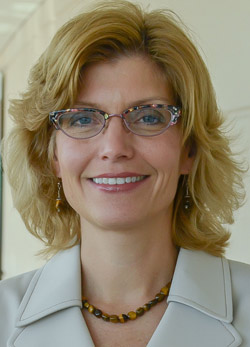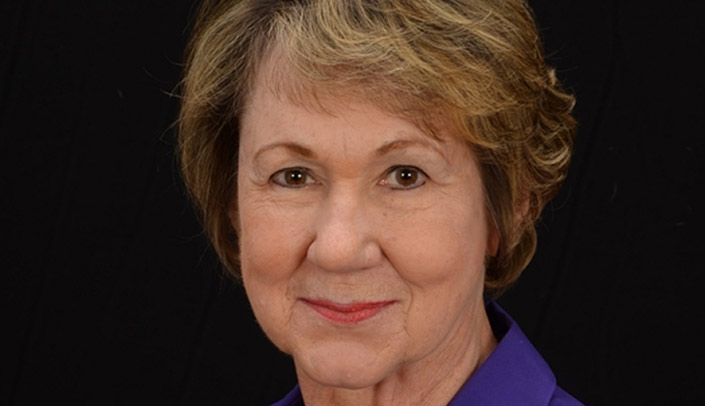The prevention of osteoporosis in post-menopausal women is the focus of a $3.2 million grant recently awarded by the National Institutes of Health to the UNMC College of Nursing and the School of Allied Health Professions.
 |
Laura Bilek, Ph.D., is co-investigator on the grant. |
Ten million Americans have severe bone loss (osteoporosis), and 34 million have early bone loss (osteopenia). Eighty percent of patients with osteopenia and osteoporosis are women. Without treatment, osteopenic women will likely develop more severe loss (osteoporosis) and have a greater risk of fractures. One in every two women will suffer an osteoporotic fracture during her lifetime.
While clinical guidelines for treatment of osteoporosis are clear (first-line treatment is a bisphosphonate), there are no clear guidelines for treating osteopenic or pre-osteoporotic women.
The research study will test three treatments for improving bone strength and preventing bone loss in osteopenic women during their first five years of menopause.
Women will be randomly assigned to 12 months of treatments of optimal calcium and vitamin D only, a bisphosphonate plus optimal calcium and vitamin D, or a structured exercise program plus optimal calcium and vitamin D, Dr. Waltman said.
After 12 months of treatment, outcomes measured in women in the three groups will include changes in bone mineral density, bone structure and bone formation.
Dr. Waltman said that the research team has developed a structured exercise program to promote bone health that consists of both weight-bearing exercises (short stretches of jogging with weighted vests) and resistance exercises (weight lifting on machines.)
Women assigned to the exercise group will participate in exercises three times weekly at the YMCA of their choice, Dr. Waltman said.
“We hypothesize that women in the exercise group will have better outcomes at 12 months than women who take calcium and vitamin D only and equal to or better outcomes than women taking a bisphosphonate,” she said.
Studies suggest that prescriptions for bisphosphonates for many women should be limited to five years or less.
The study is projected to begin in January. Women in the Omaha/Council Bluffs area currently are being recruited for the study.
For more information, contact Ashlee Portelli-Trinidad at 402-559-6584.

congratulations!!!
Congratulations!